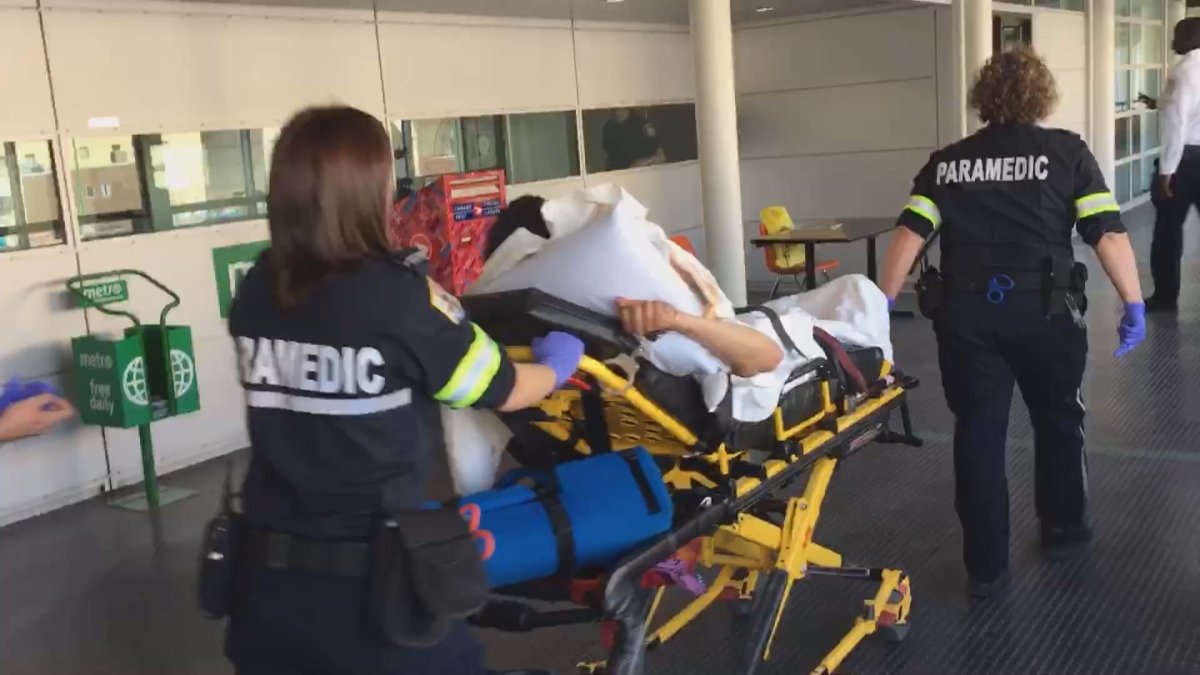Vancouver’s firefighters are closer now to getting a full-time counsellor thanks to $150,000 voted on at City Hall this week.

So far, Vancouver Fire’s “Critical Incident Stress Management Team” has been a one-man operation: a volunteer who already works a full-time shift as a firefighter.
That volunteer paid for his own training and works 30 hours on top of that every week taking the phone calls that can come at any time.
Some firefighters tell CKNW it’s a role that needs to be formalized as a full-time position with clear mandate.
In the meantime, Vancouver Firefighters Local 18 Vice President Dustin Bourdeaudhuy says for now, “if” a crew has seen something traumatic, the department may send a peer counsellor to talk to the crew about it.
“But a lot of the times, it’s up to the individual officer who says ‘hey, maybe I feel like my crew saw something that might be difficult’ and he can initiate it, or somebody on the crew can say ‘hey do you mind if we initiate the peer counselling thing where a guy comes in and talks.'”
Bourdeaudhuy says that in his 14 years on the job, he’s seen that happen just once.
However, Bourdeaudhuy says it’s becoming more culturally acceptable in the work place to say ‘I need to talk about what I saw at work today’ than it used to be.
“‘I don’t want to appear weak amongst my peers or my family,’ you know the old ‘suck it up, buttercup,’ but the more we talk about it, the more that we’ve been encouraged to talk about our feelings and share, you realize the people around you are kind of struggling with the same thing that you are… It’s becoming a lot more socially acceptable in our workplace.”
He also says it’s “staggering, but not surprising” to hear reports that 13 first responders have committed suicide across Canada this year.
“We’re only in the start of February, that’s really, really sad and we’ve seen a handful of people, first responders and firefighters in the Lower Mainland, in the last couple of years who unfortunately have committed suicide… I would venture to say that everyone who is a first responder suffers from some form of PTSD.”
BC Ambulance supervisor shares his story…
A BC Ambulance supervisor says more needs to be done for paramedics suffering from Post Traumatic Stress Disorder.
Robert Parkinson is a Vancouver paramedic who says what’s available to those diagnosed with PTSD isn’t adequate and more needs to be done.
“Unfortunately, we have $100 a year psychological benefit, it’s a benefit we don’t even know how to access, how do you spent $100 towards an appointment with a psychologist, or somebody when they are two or three dollars minimum, we don’t have any formalized support system.”
Parkinson says also contributing to PTSD are staffing shortages which leads to burnout.
LISTEN to the full interview:
“The support just doesn’t exist the way it needs to be. We need to get formalized support for people not only when they’re in crisis and that’s also what this system in place has to deal with is more of a person going through a very extreme event, a very extreme response but it’s not meant to assist or it’s not available at this point to assist somebody who may be starting to feel the impacts of trauma.”
He says the government’s own report says, Metro Vancouver needs an additional 175 paramedics.
Speaking out instead of suffering in silence
Meanwhile, a former 911 operator who is now living with chronic post-traumatic stress disorder will be sharing her experiences at a symposium on mental health at Kwantlen Polytechnic University later this month.
Rae-Lynne Dicks says too often first responders suffer in silence.
“We have to be vocal right, if it remains sight unseen, the unheard of, the shuffled off into the corner and ignored then nothing will change so we need to become more vocal about it.”
Dicks says she’s trying to spread awareness of the realities of PTSD.
“More and more are becoming more public about their mental health and it’s because the stigma associated with it is breaking down.”
The forum is set for February 23 and 24 at KPU’s Surrey campus, and it’s open to anyone.









Comments